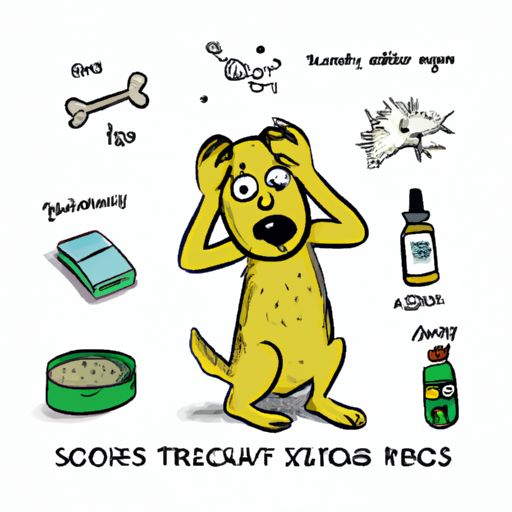Anyone who has a canine companion knows that an itchy ear can be a sign of discomfort for our furry friends. The persistent scratching can lead to further complications such as infections and even hearing loss. But don’t worry, this comprehensive guide will walk you through everything you need to know about dogs’ itchy ears, from identifying the causes to exploring various remedies.
Table of Contents
- Identifying Dogs’ Itchy Ears
- Common Causes of Dogs’ Itchy Ears
- Home Remedies for Dogs’ Itchy Ears
- When to Seek Veterinary Care
- Frequently Asked Questions
Key Takeaways
– Timely identification and treatment of itchy ears can prevent further complications in dogs.
– Causes of itchy ears in dogs can be as simple as dirt accumulation or as complex as bacterial infections.
– Home remedies can be effective, but always consult a vet before trying any remedy.
– Regular ear cleaning can help maintain your dog’s ear health.
Identifying Dogs’ Itchy Ears
Dogs’ itchy ears are not hard to spot. If your dog is frequently shaking his head, scratching his ears, or seems restless, he might be dealing with itchy ears. Other signs can include redness, swelling, discharge, and a strong odor. Dogs with long ears are especially prone to ear problems due to the lack of air circulation. Regularly checking your dog’s ears can help you catch any issues early.
Common Causes of Dogs’ Itchy Ears
There are various reasons why your dog might be scratching his ears. Accumulation of dirt or wax could be one of them. However, itchy ears are often indicative of underlying issues like allergies, ear mites, yeast, or bacterial infections.
Allergies can lead to itchy ears in dogs. Just like humans, dogs can be allergic to certain foods, pollen, dust, mold, or even certain materials like rubber or plastic.
Ear mites are tiny parasites that can cause extreme discomfort in dogs. They are contagious and can easily spread from one pet to another.
Yeast and bacterial infections are also common culprits behind dogs’ itchy ears. The warm, moist environment inside the ear is an ideal breeding ground for yeast and bacteria.
Home Remedies for Dogs’ Itchy Ears
Home remedies can be an effective way to treat your dog’s itchy ears. Here are a few methods you can try:
-
Ear Cleaning: Regular cleaning can prevent the buildup of wax and dirt in your dog’s ears. Always use a vet-approved ear cleaning solution. Here’s a helpful guide on how to clean your dog’s ears.
-
Apple Cider Vinegar: A solution of apple cider vinegar and water can help with minor yeast infections. However, make sure the dog’s ears aren’t raw or inflamed before using this solution.
-
Coconut Oil: Known for its antibacterial and antifungal properties, coconut oil can soothe itchy ears. It should be warmed slightly before application.
Remember, these remedies should be used after consulting a veterinarian. For more information on home remedies for dogs, you can visit this link.
When to Seek Veterinary Care
While home remedies can be helpful, sometimes professional medical intervention is necessary. If your dog’s symptoms persist or worsen, consult a veterinarian immediately. Certain conditions like ear mites or bacterial infections need prescription medications. Your vet might also recommend allergy testing if they suspect allergies to be the cause.
Frequently Asked Questions
Q: How often should I clean my dog’s ears?
A: It depends on your dog’s breed, age, and health. Generally, once a week is sufficient. However, dogs prone to ear infections might need more frequent cleaning.
Q: Can I use human ear drops for my dog?
A: No. Always use medications prescribed by a vet.
Q: What can I do to prevent my dog from getting itchy ears?
A: Regular cleaning, a healthy diet, and timely medical check-ups can help prevent most ear problems in dogs.
In conclusion, dogs’ itchy ears might seem like a minor issue, but if left untreated, they can lead to serious problems. Regularly monitor your dog’s ear health and consult a vet if you notice anything unusual. For more tips on dog care, you may want to read this article.
Remember, a little attention to your dog’s ears can go a long way in ensuring his well-being and happiness. So, let’s make their ear health a priority, just as much as we value their wagging tails and wet noses.



